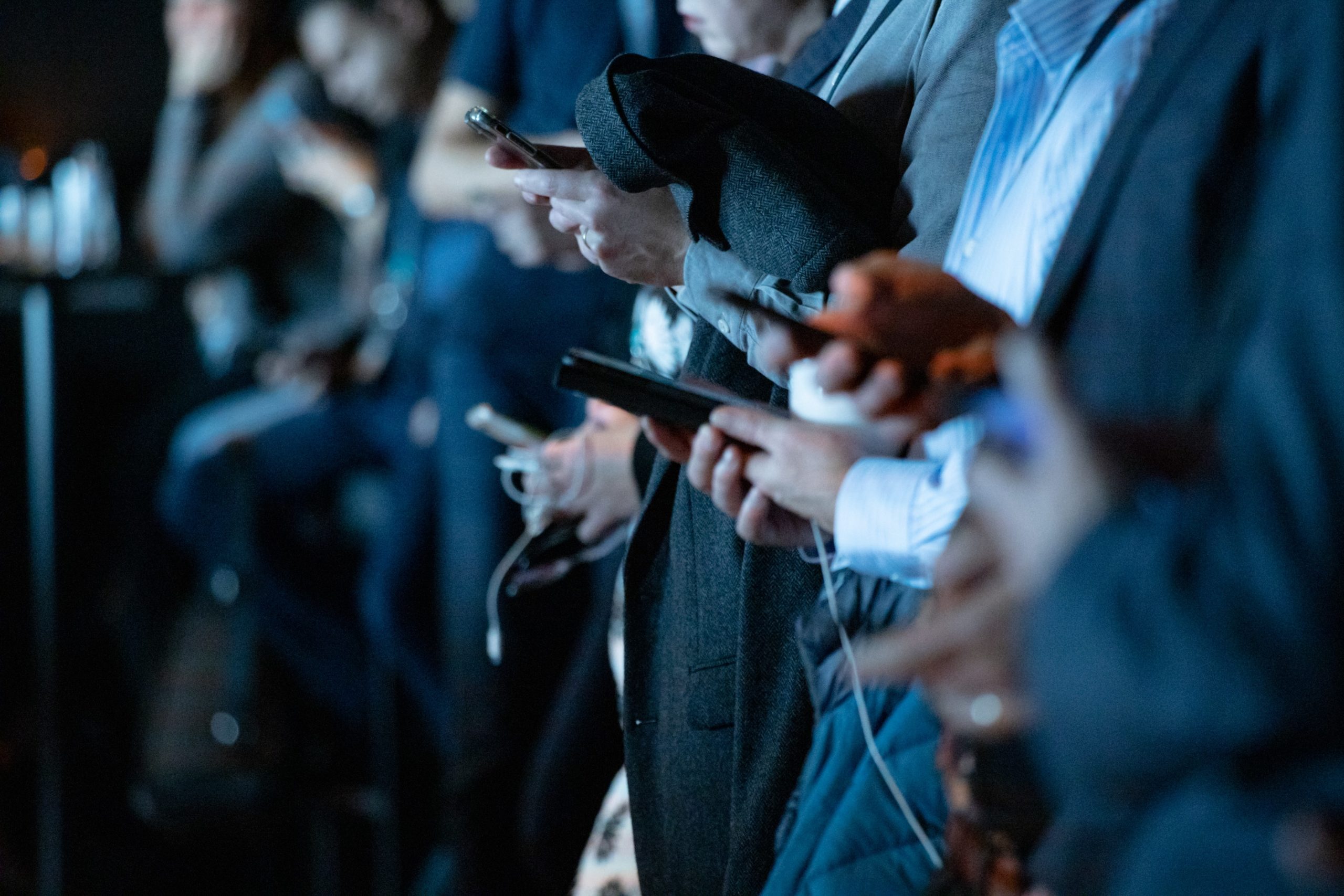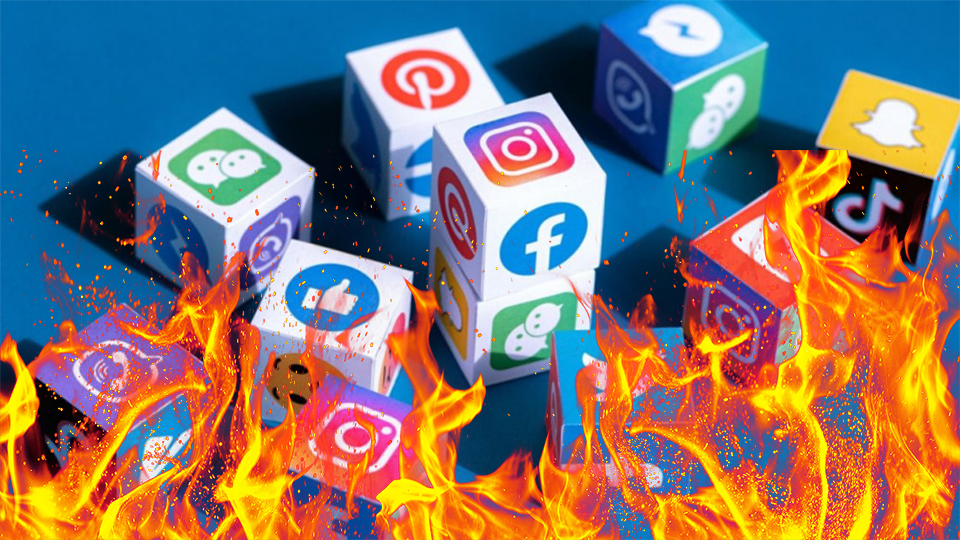Generation Black TV - Live
Why Social Media is the Fire of our Generation
Why Social Media is the Fire of our Generation
[simple-author-box]
Social media is a creation that has changed the course of mankind, much like the harnessing of fire. How can we learn from pyro progression and ensure social media is not toxic.

Photo by CHUTTERSNAP on Unsplash
Imagine you are a kid in the stone age, living in a large tribe. Your life revolves around gathering food, skinning animals, and sleeping in their skin to stay warm. This was the norm and was accepted by everyone, and that was how life was. Life is simple. One day, one of the families in a nearby tribe discovered fire, and word spread like… wildfire.
It was new, scary, intimidating, but the benefits were there. Everyone felt warm and food tasted better. As you grew into a teenager, fire slowly spread across the tribes and became a more common sight. Fire became the number one trend – the symbol of wealth and attraction. It was the new normal. It was society’s ideal. If you didn’t have fire, what were you even doing?
But at the same time, it struck fear and controversy across the tribes. Entire huts burned down, crimes were committed, and as your community learned about the devastating effects of fire, their attitude to it evolved. Your parents now forbid the use of fire, but some people still embraced it. They weren’t scared; they kept using it and did amazing things with it. They were confident, brave, adventurous. They were heroes in the eyes of everyone else, envied by those who couldn’t muster the will, and attracted by those who were wondered by it.
And so, the advent of fire instantly caused a complex society with a game of status. And above all of it, prosperity – that is, for those who used it the best. Technology is a double-edged sword and as technological development accelerated in the 21st century, mental health has become a central issue. We have been plunged into a world where you witness the lifestyles of others every single time you pull out your phone. You’re left wondering why you’ve been left out of your generation. Are you not enough?

Photo by CHUTTERSNAP on Unsplash
While many articles and individuals argue that it is all fake and that you should not compare yourself to these people, I’d say that that is half true. While it is true that most “successful” people hide their imperfections, that does not negate the fact that their highlights might be much better than yours. Kids who grow up with strict parents also grow up in their own beds watching their friends enjoy New Year’s Eve with each other in a house party at 2am. Kids in poor households now can see people their age who are on vacations every summer.
The problem here isn’t that social media is a superficial platform – it’s the fact that now you have access to the whole world, you also have more to compare yourself to. Before, you felt comfortable with who you were around your friends and family. Now you must feel this way in front of the population of the entire world. Many underestimate the toll this takes on our self esteem. When fire was introduced to the world, many would have shied away. But some thrived on it and leveraged it to their advantage.
By choosing not to engage in social media, you are choosing not to fit in. But it runs deeper than this. The growth and increasing complexity of our social networks have caused a very nuanced system of culture that forms the bedrock of the subliminal nature of our society. There is so much to keep up with; from music, to memes, to trends. The reality has sunk in that to be regarded as likeable to the majority, you must be socially aware on an in-person level but also on a global one.

Photo by camilo jimenez on Unsplash
Now, why is this so significant from a mental health perspective? Well, humans rely on each other for validation and approval. A Muslim growing up in a Muslim family is likely to feel safe and secure in their identity, for that is their reality and their ideal. But throw a Muslim into the depths of social media and watch their reality shift from a warm and mentally secure path to a world of sheer anxiety and insecurity. What you thought was “cool” is actually “boring”.
The core issue of social media, in its most stripped-down form, is its power to affect your very identity. Humans possess an innate drive to self-improve, yet they are presented with humans who possess physical natural ideals such as an ideal height, body shape and complexion. Tweets and “quotes” are posted on popular Instagram pages with “relatable” statements which only support the societal expectations of what is considered ideal. Social media has subconsciously presented the world as an uneven playing field on multiple levels, which causes no surprise in the detrimental effects on the average user’s mental health. In several recent studies, 66% of teenagers and young adults who use social media frequently experience symptoms of anxiety and depression.
 However, all is not lost. Before I explore the options of what you can do about coping in this fierce and socially ruthless new world, it is worth mentioning that on the flip side, social media has done a tremendous amount for society. While many demographics and personalities were ruined and hijacked, many have thrived. The whole world coming together meant that those with the voice and the power were able to raise awareness of many existing issues that face our world, like homophobia, racism and climate change, to name a few.
However, all is not lost. Before I explore the options of what you can do about coping in this fierce and socially ruthless new world, it is worth mentioning that on the flip side, social media has done a tremendous amount for society. While many demographics and personalities were ruined and hijacked, many have thrived. The whole world coming together meant that those with the voice and the power were able to raise awareness of many existing issues that face our world, like homophobia, racism and climate change, to name a few.
Many people were brought together through common missions and agendas to give rise to impactful communities. In addition to this, further subcommunities based on practically every topic you can think of have grown and solidified, creating a platform for anyone to showcase their talent and personality. Social media is an amazing invention, and, like fire, it has formed the baseline for an infinite range of possibilities. Social media is the fire of our generation, but how will we wield it?


